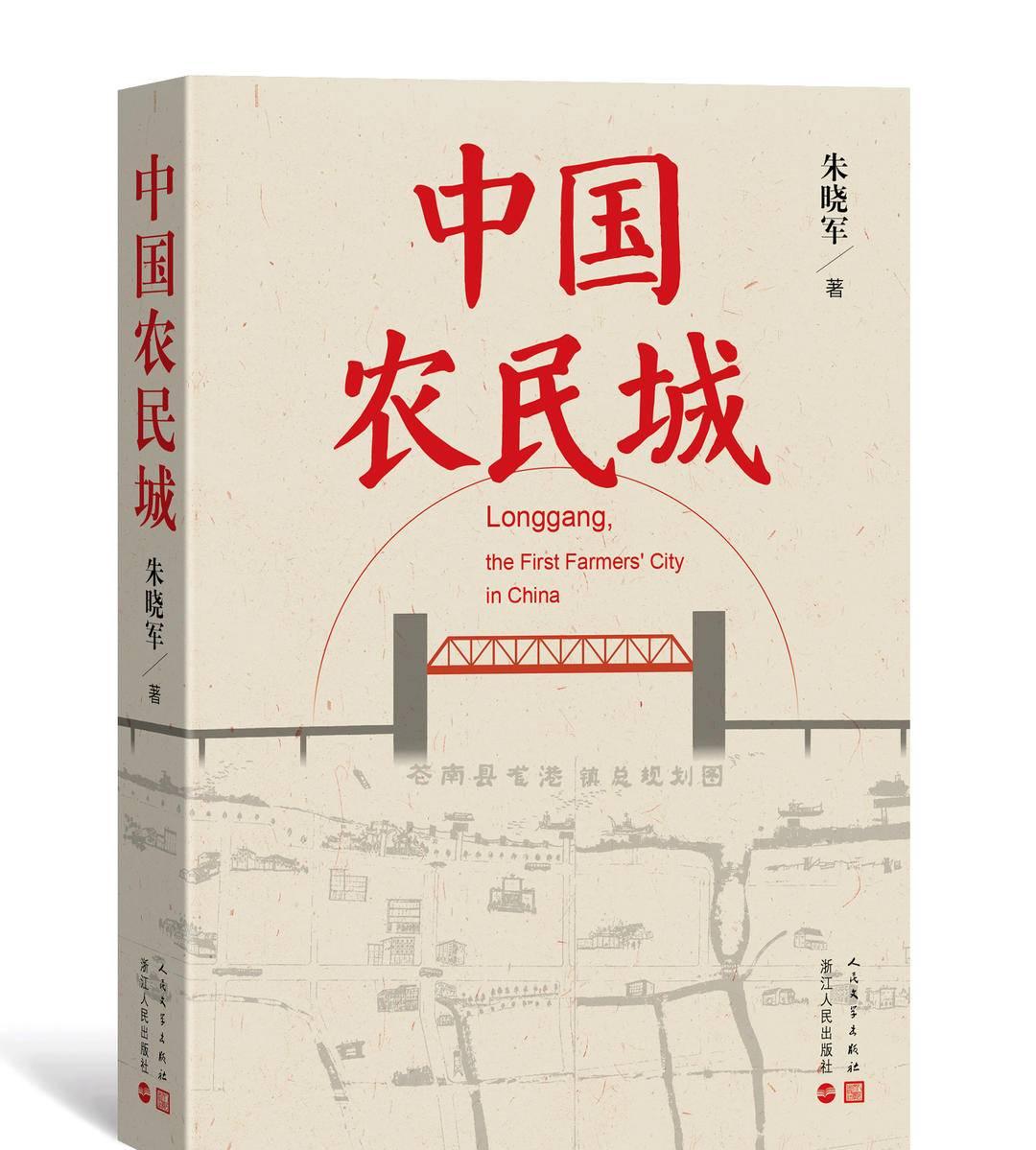In the 1980s, there was a folk song in Wenzhou, Zhejiang Province: "Pingyang begged for food, Yongjia fled, Dongtou relied on loans to eat..." In 1981, the famous poverty-stricken county of Pingyang became two poverty-stricken counties. Among them, Cangnan is particularly poor, there is no county, central town, and no economic center, for this reason, the local decision to build an economic center and a material distribution center - Longgang Town. Zhu Xiaojun's long-form reportage "Chinese Peasant City" was recently published by the People's Literature Publishing House and the Zhejiang People's Publishing House. This book takes the development of Longgang, Zhejiang, a "town reform city" with no townships and streets as the main line, and tells the real history of the development of a small fishing village into China's first peasant city.

Zhu Xiaojun, a well-known contemporary reportage writer, has always attracted much attention for his writing that pays attention to reality and people's livelihood, and has published works such as "The Redemption of a Doctor", "The Conscience of a Senior Official", "Express China" and other works, and has won the Lu Xun Literature Award and the Xu Chi Reportage Literature Award.
Zhu Xiaojun
"Chinese Peasant City" truly writes that on the road to peasants' prosperity, there is a miracle called longgang miracle, there is a group of strange people called longgang people, this book is a vivid literary reproduction of the image of "Zhejiang model" and "Wenzhou model", which is a very important milestone for us to look back.
In "Chinese Peasant City", every character is writing a legend with his life and dreams. The old secretary Chen Dingmo is the first strange man in Longgang, he has repeatedly found a chance in the Jedi, although he only has a primary school diploma, he can read through masterpieces of political theory, and in repeated thinking and research, with the help of the reform and opening up policy and the No. 1 document of the Central Committee, he has found the method and basis for reform from "Capital". "Chinese Peasant City" objectively and truthfully records the various obstacles faced in the process of longgang construction, the various difficulties encountered, the serious clan contradictions in the Jiangnan region, the competition of various local forces, and the constant tests and doubts of leading cadres.
The work deeply excavates the working attitude of the grass-roots leaders in Longgang to emancipate their minds and advance with the times, writes out their spirit of daring to be the first, pursuing excellence and surpassing themselves, and tells their spirit of openness and courage to think and dare to do.
In the early years, Longgang people called the 10,000 yuan household "monkey", each monkey has its own history of hard struggle, and everyone's road to prosperity records the hard work illuminated by dreams. Chen Zhizhi, who spun and embroidered from small yarn, Chen Ruixing, who cut rubber in the deep mountains, Yang Enzhu, who built seven floors, as well as Chen Changxu, Yang Xiaoxia, Wang Junyao, and other Longgang people, everyone's past is wonderful and extraordinary, and everyone's road to prosperity and conceptual change have become a true portrayal of farmers' realization of the Chinese dream in the new era.
Writer Tie Ning once said: "Literature and art is a basic way for people to understand and imagine the world, in this new era, writers and artists especially shoulder a major responsibility, that is, to understand life, understand the world, and convey their own understanding and ideals to the people, spiritually enlighten people, inspire people, create a better life, and promote social progress." "China Peasant City" is such a work, the author in-depth interviews and records hundreds of Longgang people yesterday and today, leaving a precious memory of urban changes and the spiritual history of the process of peasants to citizens. It not only shows the new era spirit of Longgang people daring to try, innovate and start a business, and be enlightened and open, but also portrays the vicissitudes and great changes of a group of farmers on the road of urbanization in the new era and a full sense of gain and pride. Yangzi Evening News/Purple Cow News reporter Huang Yanwen
Source: Purple Cow News